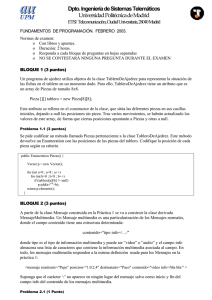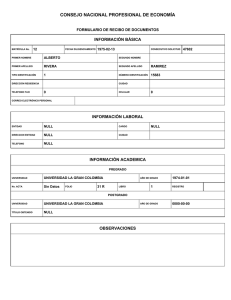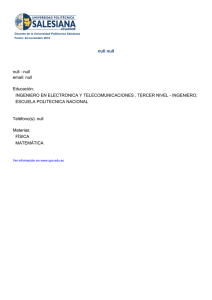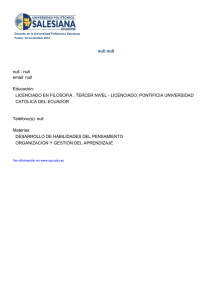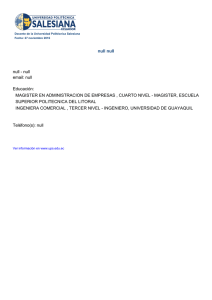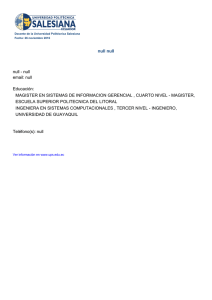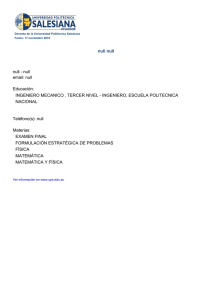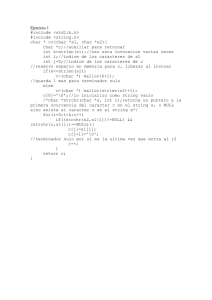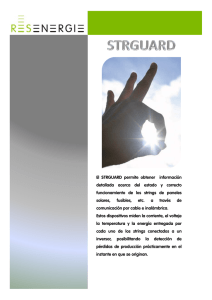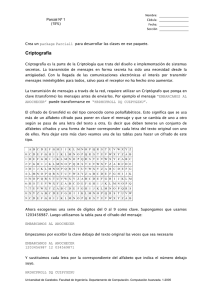Pauta C1-2009 - U
Anuncio
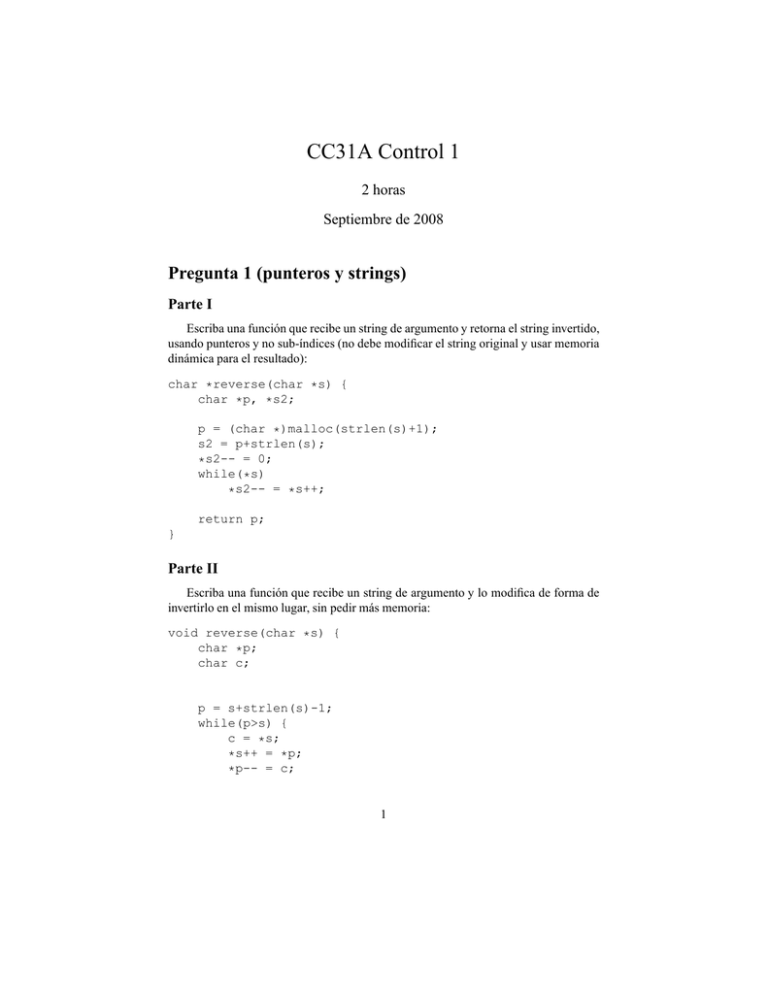
CC31A Control 1
2 horas
Septiembre de 2008
Pregunta 1 (punteros y strings)
Parte I
Escriba una función que recibe un string de argumento y retorna el string invertido,
usando punteros y no sub-ı́ndices (no debe modificar el string original y usar memoria
dinámica para el resultado):
char *reverse(char *s) {
char *p, *s2;
p = (char *)malloc(strlen(s)+1);
s2 = p+strlen(s);
*s2-- = 0;
while(*s)
*s2-- = *s++;
return p;
}
Parte II
Escriba una función que recibe un string de argumento y lo modifica de forma de
invertirlo en el mismo lugar, sin pedir más memoria:
void reverse(char *s) {
char *p;
char c;
p = s+strlen(s)-1;
while(p>s) {
c = *s;
*s++ = *p;
*p-- = c;
1
}
}
Parte III
Escriba una función que retorna un substring del argumento, a partir de la posición
i. Si i es positivo, se cuenta desde el comienzo. Si es negativo, desde el final. No pida
memoria para el resultado, use el mismo string de origen.
char *substring(char *s, int i) {
if(i >= 0)
return s+i;
else
return s+strlen(s)+i;
}
Pregunta 2 (listas)
Queremos implementar strings con listas enlazadas. Definimos el tipo STRING y
el string vacı́o es NULL.
Se les pide escribir las funciones strcpy (retorna una copia del string), strcat
(retorna un nuevo string donde s1 va pegado con s2), strcmp (compara dos strings) y
strchr (retorna un puntero al sub-string que comienza en la letra c.
typedef struct nodo {
struct nodo *next;
char c;
} STRING;
/* cada caracter es un nodo */
STRING *strcpy(STRING *orig) {
STRING *res, *p;
if(orig == NULL) return NULL;
p = (STRING *)malloc(sizeof(STRING));
if(p==NULL) return NULL;
p->c = orig->c;
p->next = Strcpy(orig->next);
return p;
}
STRING *strcat(STRING *s1, STRING *s2) {
STRING *p, *res;
res = Strcpy(s1);
if(res == NULL) return Strcpy(s2);
for(p=res; p->next != NULL; p=p->next)
2
;
p->next = Strcpy(s2);
return res;
}
int strcmp(STRING *s1, STRING *s2) {
if(s1 == NULL && s2 == NULL) return 0;
if(s1 == NULL) return -1;
if(s2 == NULL) return 1;
if(s1->c < s2->c) return -1;
if(s1->c > s2->c) return 1;
return Strcmp(s1->next, s2->next);
}
STRING *strchr(STRING *s, char c) {
if(s == NULL) return NULL;
if(s->c == c) return s;
return(Strchr(s->next, c));
}
Pregunta 3 (árboles)
Implemente en un ABB la búsqueda de la llave máxima almacenada en el árbol
(superior lexicográficamente a todas las otras):
Si el árbol estaba vacı́o, debe retornar NULL.
typedef struct abb {
char *llave;
void *val;
struct abb *left, *right;
} TREE;
char *max_abb(TREE *t) {
if(t == NULL) return NULL;
for(; t->right != NULL; t=t->right)
;
return t->llave;
}
3
